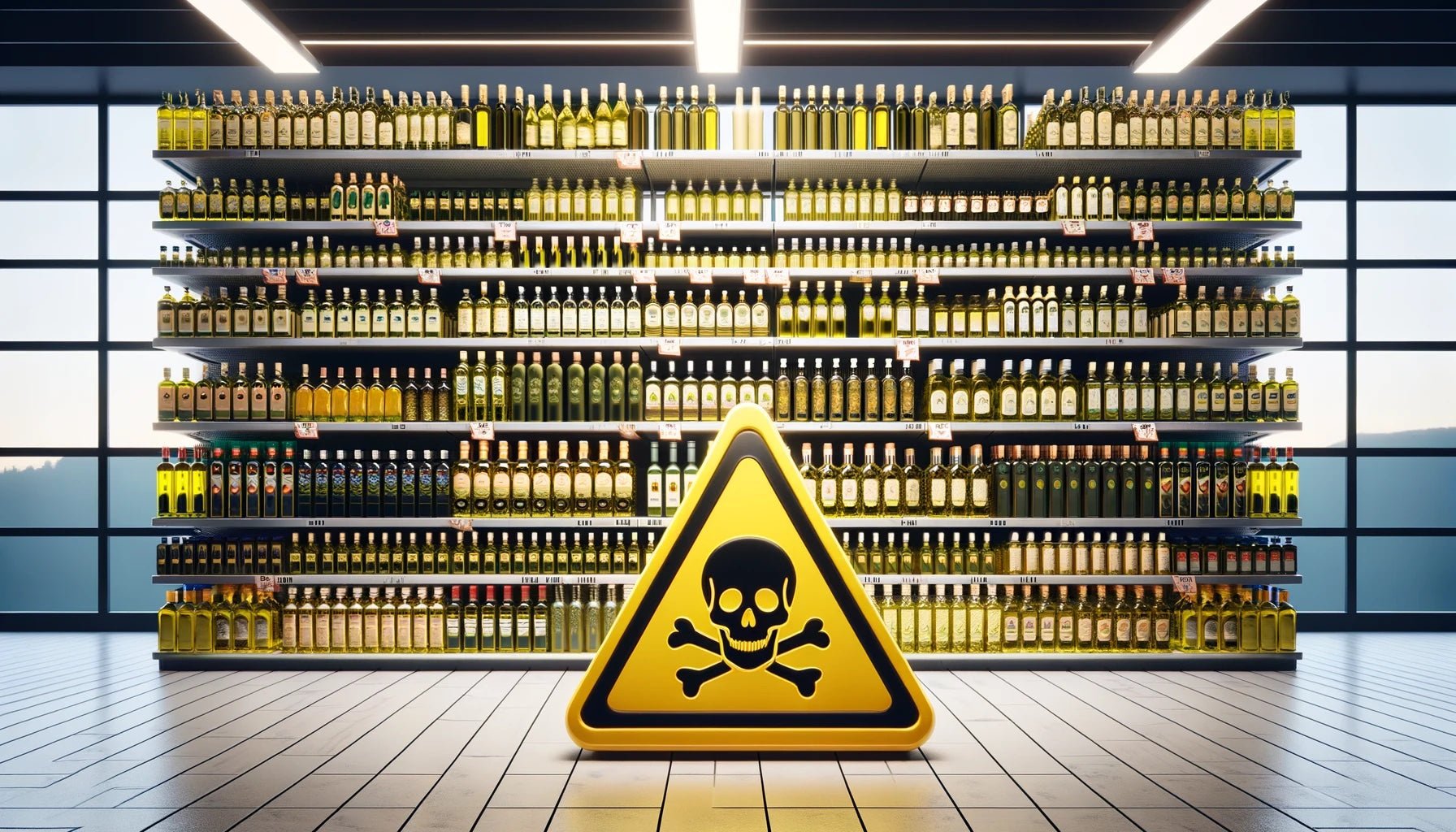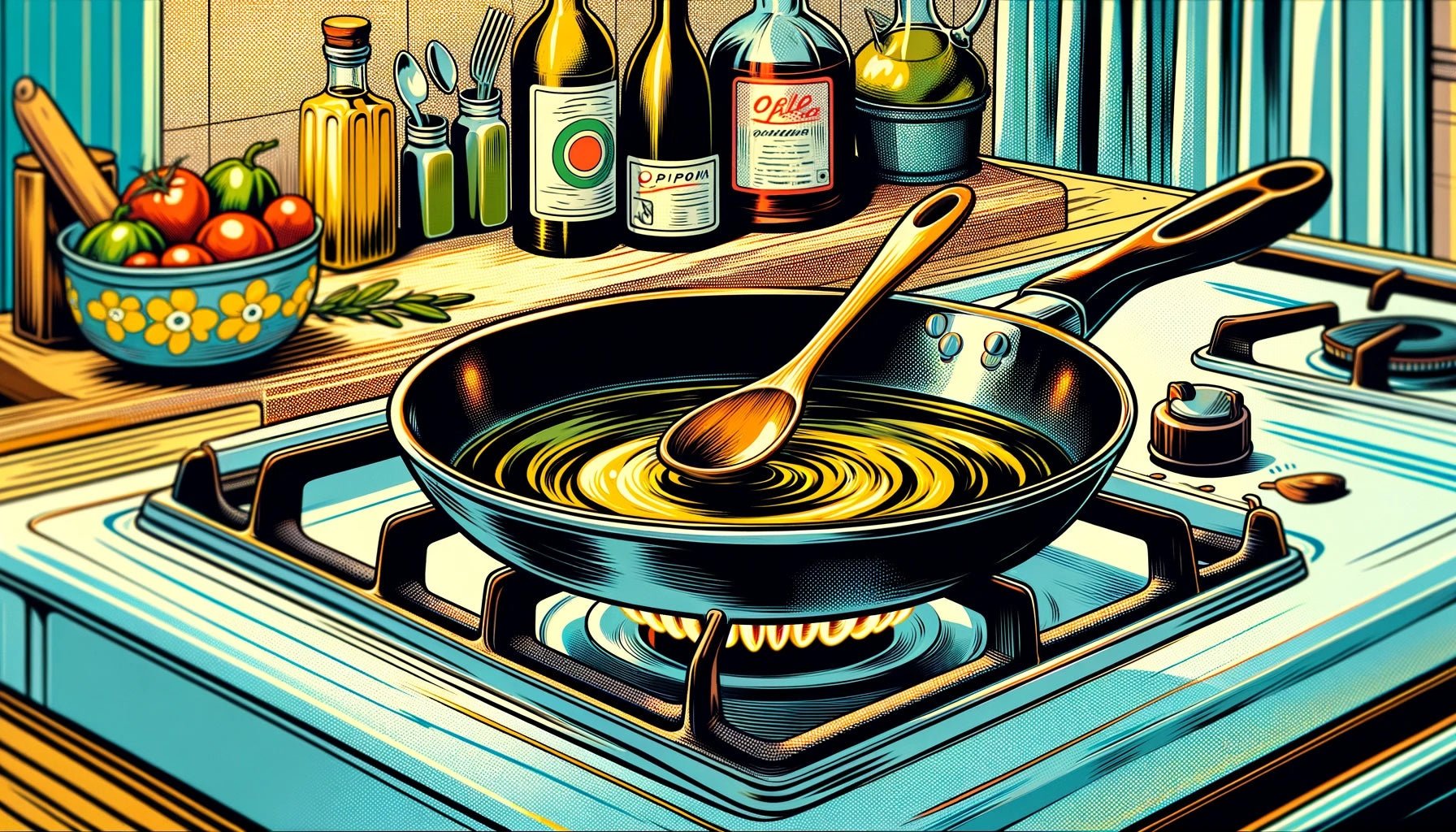If you follow these tips, your olive oil will stay fresh for a long time!Many of you ask us: “How long does olive oil last?” The good news: Olive oil has a surprisingly long shelf life – provided it is stored properly. In this article, you will learn how long olive oil lasts , how to recognize spoiled oil, and how to store it to best protect it. ✅ How long does olive oil last?A high-quality extra virgin olive oil —like the one you'll find here—will keep unopened for at least 18 to 24 months . However, the shelf life depends heavily on storage. After opening: 🔹 Optimal storage: If stored in a cool, dark and airtight place, the oil will stay fresh for 8 to 12 months and retain its full aroma. 💡 Fun fact: ❌ How to recognize rancid olive oil: 🛡 How to keep your olive oil fresh – the most important storage tipsTo ensure your olive oil retains its full aroma and does not lose its quality prematurely, follow these simple but crucial tips: ✔ Store in a dark and cool place: ✔ Seal airtight: ✔ Sun protection is everything: 💡 Extra tip: 🧐 Frequently asked questions about olive oil – The most important answers❓ Can olive oil go bad?Yes, but with proper storage, high-quality olive oil will remain stable for years without deteriorating. However, it will oxidize over time, especially when exposed to light, heat, and oxygen . You can recognize rancid oil by its musty odor and a dull, unpleasant taste . 💡 Pro tip: A good olive oil always tastes fresh, fruity, and slightly peppery . If it smells or tastes rancid, throw it away. ❓ Can olive oil still be used after the best-before date?Yes! The best-before date (BBD) is not an expiration date – it simply means that the manufacturer guarantees full quality until that date. As long as the oil smells and tastes good , you can use it without hesitation. 🔎 How do I test if my olive oil is still good?
❓ Should olive oil be stored in the refrigerator?Not necessarily. Cold can make olive oil cloudy and thick , but this is reversible. Once the oil returns to room temperature, it will become liquid again – without any loss of quality . 🛑 When does refrigerator storage make sense?
🟢 The best storage remains: cool, dark and airtight – a normal kitchen cupboard is completely sufficient . ❓ Why does olive oil clump in cold weather?This is a natural process ! The waxes and fatty acids solidify at low temperatures. As the oil warms up, it becomes clear again— a sign of quality, not spoilage. ❓ Is expensive olive oil really better?Yes – but only if it's truly high-quality. Price alone says little about quality. Many supermarket olive oils, while expensive, contain blends of inferior oils or have already oxidized due to storage and transport. 🔍 What makes a good olive oil? ✅ Single variety: Pressed from only one type of olive (e.g. Koroneiki). 💡 Fun Fact: Good olive oil not only tastes better, but contains more antioxidants and healthy polyphenols than industrially processed oil. ❓ Why does high-quality olive oil burn my throat?This is a sign of quality! The slight spiciness comes from polyphenols , which have strong antioxidant properties and health benefits. The more it scratches your throat, the fresher and healthier the oil is. 👅 The 3-step taste test: 💡 The more intense, the fresher – but it’s a matter of taste. ❓ Can you fry with olive oil?Yes, absolutely! High-quality olive oil is very heat-stable and remains stable when frying up to 210°C – far above the temperature of butter or sunflower oil. ❌ Myth: "Olive oil should not be heated!" → False. 💡 When to use olive oil in cooking: ❓ What is the difference between “Extra Virgin” and “Native”?The designation “Extra Virgin Olive Oil” means that the oil is free from defects and comes from the first cold pressing. Extra virgin olive oil → Highest quality , perfect freshness, maximum 0.8% acidity. 🔍 Rule: Always buy “Nativ Extra” – everything else is inferior. 🔗 Want more olive oil knowledge? |




Leave a comment
All comments are moderated before being published.
This site is protected by hCaptcha and the hCaptcha Privacy Policy and Terms of Service apply.